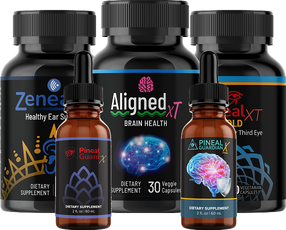Lion's Mane Mushroom for Memory: Benefits, Research, and What Science Shows

Memory lapses happen to everyone. Forgetting where you placed your keys, struggling to recall a name, or losing your train of thought mid-sentence are common experiences, especially as we age.
While some cognitive changes are a natural part of getting older, research suggests that certain natural compounds may help support brain health and memory function.
Lion's Mane mushroom (Hericium erinaceus), also known as Yamabushitake in Japan, has been used in traditional Asian medicine for centuries and is now the subject of growing scientific interest for its potential cognitive benefits.
Let's examine what clinical research actually shows about this distinctive fungus and its relationship to memory and brain health.
Understanding Cognitive Changes
Cognitive function naturally evolves throughout our lifespan. Various factors contribute to cognitive changes, including oxidative stress, toxins, inflammation, and changes in neurotransmitter systems.
Understanding these mechanisms helps explain why certain natural compounds may offer support for brain health.
The brain's ability to form new neural connections, a process called neuroplasticity, is crucial for learning and memory.
Research has shown that this capacity can be influenced by various lifestyle factors and potentially by certain nutritional compounds.
What is Lion’s Mane Mushroom?
Lion's Mane (Hericium erinaceus) is an edible and medicinal mushroom native to North America, Europe, and Asia. It gets its name from its distinctive appearance… long, white, cascading spines that resemble a lion's mane.

In traditional Chinese medicine and Japanese folk medicine, it has been used to support digestive health and overall vitality.
The mushroom contains several bioactive compounds, including:
- Hericenones (found in the fruiting body)
- Erinacines (found in the mycelium)
- Beta-glucan polysaccharides
- Various antioxidants
These compounds have attracted scientific attention due to their potential effects on nerve growth factor (NGF), a protein important for the maintenance and survival of nerve cells.
The Landmark Clinical Study: Real Results in People
The most significant research on Lion's Mane and human cognition comes from a rigorous 2009 study that set the standard for understanding this mushroom's effects.
Study: Cognitive Improvement in Mild Cognitive Impairment
A double-blind, placebo-controlled trial published in Phytotherapy Research examined 30 Japanese patients aged 50-80 with mild cognitive impairment [1]. This study is particularly important because:
- It used the gold-standard methodology (double-blind, placebo-controlled)
- It tested real people with actual cognitive concerns
- Results were measured objectively using standardized cognitive tests
Protocol: Participants took either 250mg tablets containing 96% Lion's Mane dry powder three times daily (total 750mg/day) or placebo for 16 weeks.
Results: The Lion's Mane group showed significantly higher scores on cognitive function scales compared to placebo at weeks 8, 12, and 16 of treatment. The improvements were measurable and consistent throughout the study period.
Important finding: Scores decreased after discontinuation, suggesting continued supplementation may be necessary for sustained benefits.
This study demonstrated that Lion's Mane supplementation could produce meaningful cognitive improvements in people experiencing age-related memory concerns—not just in test tubes or animal studies, but in actual human participants.
How Lion's Mane Works
Based on current research, Lion's Mane appears to support cognitive function through several interconnected mechanisms:
1. Nerve Growth Factor (NGF) Stimulation
This is Lion's Mane's most distinctive property. Studies have shown that compounds in Lion's Mane, particularly hericenones and erinacines, can stimulate the production of nerve growth factor [2].
NGF is crucial for:
- Maintenance of existing neurons
- Growth of new nerve connections
- Survival of nerve cells under stress
- Synaptic plasticity (the brain's ability to adapt and form new connections)
Think of NGF as fertilizer for your brain. As we age, natural NGF production declines, leading to reduced neuroplasticity and impaired memory formation. Lion's Mane helps restore this critical factor.
2. Crossing the Blood-Brain Barrier
Research published in the Journal of Agricultural and Food Chemistry confirmed that active compounds from Lion's Mane (specifically erinacines) can cross the blood-brain barrier [3]. This is crucial because many supplements fail to reach the brain tissue where they're needed most.
The blood-brain barrier is a selective membrane that protects the brain from harmful substances. Only certain compounds can pass through it, which means Lion's Mane's active ingredients can directly interact with brain neurons and support cognitive health at the cellular level.
3. Antioxidant and Anti-inflammatory Properties
Research has demonstrated that Lion's Mane possesses significant antioxidant and anti-inflammatory activity [4]. These properties are important because:
- Oxidative stress contributes to age-related cognitive decline by damaging brain cells
- Chronic inflammation in the brain has been linked to memory problems and cognitive decline
- Compounds that reduce both can help protect long-term brain health
Lion's Mane acts like a protective shield, helping to flush out accumulated toxins and reduce inflammation that can impair cognitive function.
4. Supporting Mood and Stress Response
A 2010 pilot study involving 30 women found that Lion's Mane consumption was associated with reduced feelings of irritation and anxiety [5]. While this was a small study, it suggests Lion's Mane may support emotional well-being alongside cognitive function, both of which are interconnected aspects of brain health.
What The Research Shows (And Doesn’t Show)
What we know:
- Lion's Mane can produce measurable improvements in cognitive function tests in people with mild cognitive impairment
- The effects appear after 8-16 weeks of consistent supplementation
- Benefits seem to diminish after stopping supplementation
- The mushroom has a favorable safety profile with minimal reported side effects
- Active compounds can reach the brain and stimulate NGF production
What needs more research:
- Optimal dosages for different populations and conditions
- Long-term effects beyond 16 weeks
- Effects in people without cognitive impairment
- How it compares to other cognitive support compounds
- Ideal combinations with other nutrients or lifestyle practices
Dosage and Quality Consideration
The effectiveness of Lion's Mane supplementation depends heavily on quality and formulation:
Forms and Dosages Used in Research
The landmark cognitive study used:
- 750mg daily of dried fruiting body powder (96% purity)
- Divided into three doses throughout the day
- Taken consistently for 16 weeks
Other research has explored dosages ranging from 500mg to 3000mg daily, depending on the extract concentration and form.
Quality Factors That Matter
Extraction method: Dual-extraction processes (both water and alcohol) capture the full spectrum of beneficial compounds. Water extraction captures polysaccharides and beta-glucans, while alcohol extraction captures hericenones and other compounds.
Source material: Most human clinical trials showing cognitive benefits used fruiting body extracts, which contain higher concentrations of bioactive compounds compared to mycelium grown on grain substrates.
Purity and testing: Premium supplements should be tested for heavy metals, pesticides, and other contaminants. Third-party verification provides additional confidence.
Formulation: Some advanced formulations combine Lion's Mane with complementary compounds for enhanced cognitive benefits.
For example, Pineal Guardian X includes Lion's Mane mushroom alongside ingredients like Bacopa Monnieri, Ginkgo Biloba, and Pine Bark Extract in a liquid formula designed for optimal absorption and bioavailability.

A Comprehensive Approach to Brain Health
While Lion's Mane shows promise, research consistently indicates it works best as part of a holistic approach to cognitive wellness:
Quality Sleep: Essential for memory consolidation. Aim for 7-9 hours nightly in a dark, cool environment.
Brain-Healthy Diet: Emphasize antioxidant-rich foods (berries, leafy greens), omega-3 fatty acids (fatty fish, walnuts), and minimize processed foods. The MIND diet has been associated with reduced cognitive decline in research studies.
Regular Physical Activity: Exercise supports brain health by increasing blood flow, stimulating BDNF production, and reducing inflammation.
Mental Stimulation: Engage in cognitively challenging activities, learning new skills, puzzles, reading, creative pursuits, to build cognitive reserve.
Stress Management: Chronic stress negatively affects the hippocampus, a brain region crucial for memory. Practices like meditation, deep breathing, or yoga support cognitive health.
Safety Profile
Lion's Mane has a favorable safety record:
- Human clinical trials have reported minimal adverse effects
- The mushroom has a long history of culinary use in Asian countries
- No serious side effects have been reported in published studies
Considerations:
- Individuals with mushroom allergies should exercise caution
- Limited data exists on use during pregnancy and lactation
- Some individuals report mild digestive discomfort when first starting supplementation
- Potential medication interactions haven't been extensively studied
As with any supplement, it's advisable to consult with a healthcare provider before beginning supplementation, particularly for individuals with existing health conditions or those taking medications.
The Bottom Line
Based on available clinical evidence, Lion's Mane mushroom shows genuine promise as a natural compound that may support cognitive function and memory, particularly in individuals experiencing age-related cognitive changes.
The landmark 2009 study demonstrated real, measurable improvements in cognitive test scores over 16 weeks in people with mild cognitive impairment. The mushroom's ability to stimulate nerve growth factor, provide antioxidant protection, and cross the blood-brain barrier offers plausible mechanisms for these observed effects.
Lion's Mane is a natural compound that appears to support brain health when used consistently over time as part of a comprehensive approach to cognitive wellness.
For individuals interested in supporting their cognitive health naturally, Lion's Mane represents a well-tolerated option with encouraging research support, particularly the rigorous, placebo-controlled human trial that demonstrated its effectiveness.
The ancient practitioners who used this mushroom for brain health were onto something meaningful, and modern science is helping us understand exactly why.
________________________________________________________________________________________________
These statements have not been evaluated by the Food and Drug Administration. This product is not intended to diagnose, treat, cure, or prevent any disease.
References
[1] Mori, K., Inatomi, S., Ouchi, K., Azumi, Y., & Tuchida, T. (2009). Improving effects of the mushroom Yamabushitake (Hericium erinaceus) on mild cognitive impairment: a double-blind placebo-controlled clinical trial. Phytotherapy Research, 23(3).
PubMed ID: 18844328 | DOI: 10.1002/ptr.2634
This is the landmark study demonstrating cognitive improvements in human participants with mild cognitive impairment.
[2] Lai, P.L., Naidu, M., Sabaratnam, V., Wong, K.H., David, R.P., Kuppusamy, U.R., Abdullah, N., & Malek, S.N. (2013). Neurotrophic properties of the Lion's mane medicinal mushroom, Hericium erinaceus (Higher Basidiomycetes) from Malaysia. International Journal of Medicinal Mushrooms, 15(6).
PubMed ID: 24266378
Key research on NGF stimulation by Lion's Mane compounds.
[3] Kawagishi, H., & Zhuang, C. (2008). Compounds for dementia from Hericium erinaceum. Drugs of the Future, 33(2).
Research demonstrating that Lion's Mane compounds can cross the blood-brain barrier.
[4] Friedman, M. (2015). Chemistry, nutrition, and health-promoting properties of Hericium erinaceus (Lion's Mane) mushroom fruiting bodies and mycelia and their bioactive compounds. Journal of Agricultural and Food Chemistry, 63(32).
PubMed ID: 26244378
Comprehensive review of Lion's Mane's chemical properties and health benefits.
[5] Nagano, M., Shimizu, K., Kondo, R., Hayashi, C., Sato, D., Kitagawa, K., & Ohnuki, K. (2010). Reduction of depression and anxiety by 4 weeks Hericium erinaceus intake. Biomedical Research, 31(4).
PubMed ID: 20834180
Pilot study examining mood effects of Lion's Mane supplementation.




